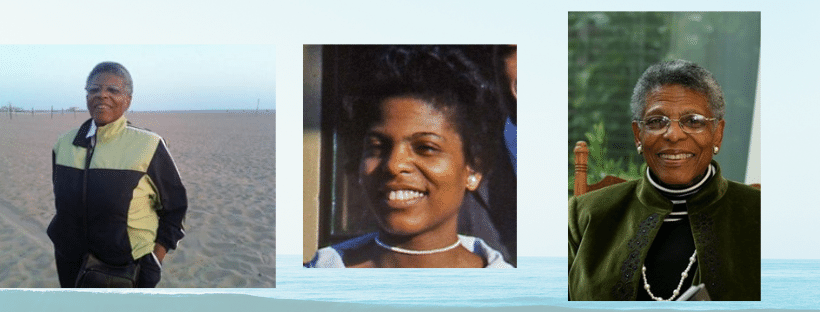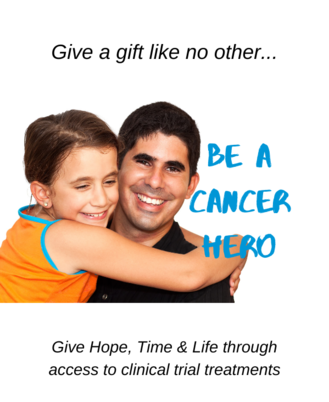There is a compendium of evidence that shows that one of the greatest contributors to successful treatment and healing is the mind.
By Marya Shegog, PhD, MPH, CHES: Health Equity and Diversity Coordinator, Lazarex Cancer Foundation
Rose Camille Thomas – Watson, PhD was my aunt and mother’s older sister. She died from cancer but, if there is ever a picture of successful living with cancer, my aunt was it. She had an entire team focused on her treatment of cancer which included complimentary medicine, spiritual, physical, and mental coaches, the clinical care team as well as a host of family physicians and health care providers who would conference with the care team at every step of the way. Her schedule was awesomely full, and it helped her years spent with cancer to be filled with love, joy and productivity.
My Aunt Rose had a schedule that exhausted me as a temporary caregiver, mostly because I was driving around in a town I did not know and navigating to and from places on a strict timeline was a bit of a challenge. Her list of activities included a “writing with cancer” group, acupuncture, Livestrong work out at the YMCA, church activities and mental health therapy. Even after receiving less than optimal news at the doctor’s office she had to go to her writing group which kept her from falling into sadness and sometimes ushered her into the next step of planning. I was only there for a week, but I was so glad that I had that week to experience my aunt’s schedule and witness her frustration and sometimes anger with herself, her family and most of all the cancer. I also watched her schedule an appointment with her psychologist and minster to help her navigate the emotional minefield. Not many get such comprehensive care while living with cancer. I am so glad she did.

I have had cancer and received care. The one thing that was never addressed was the mental aspect of having your body turn on you, no matter what. Even if the cancer was caused by your lifestyle or behaviors, it is an emotional and mental mind bender to think that your body has begun to make some new cells that eventually may end your life. The care team I had was good at taking time and identifying what treatment plans were available to me. They let me know of possible side-effects as well as the unknown possible outcomes. But there was no suggestion on how to manage myself while I waited for treatment. The cancer really filled every part of my consciousness. My partner at the time had a hard time because in intimate moments I would think about how I may be dying. My family wanted to act as if this were a blip in the road of life while simultaneously attempting to make every moment count because no one was sure if I would be around for another such gathering or event. I was in graduate school and as a student I did not take the option to take a semester off or request an incomplete for my courses. I pushed on. I learned to speak fluently through tears and discuss how my allergies were really bothering me as an explanation for the tears. It was a tough time.
I never even thought of going to therapy, as a fulltime student it was available to me on campus, I just did not think of it. Managing life with cancer is hard. I was not working with a fully intact set of mental competencies. I wish one of my doctors or family members would have urged me to get some sort of mental health support. In fact, I believe that mental health support should be part of the cancer care plan.
There is a compendium of evidence that shows that one of the greatest contributors to successful treatment and healing is the mind. If a person is mentally well their healing is usually more effective. If a person is managing their emotions and can achieve a positive outlook, then the quality of life is better no matter what the outcome of the treatment is. Most modern medicine is compartmentalized. There is not enough thought given to the mental state of a cancer patient and how it may impact their decision-making process. As we fight for equity in treatment, access to care and opportunities to participate in clinical trials we should consider a more holistic approach that includes mental health and wellness. That includes the opportunity to speak with a mental health professional before decisions are being made. Mental Health must be included in the recipe for equity in health care.




